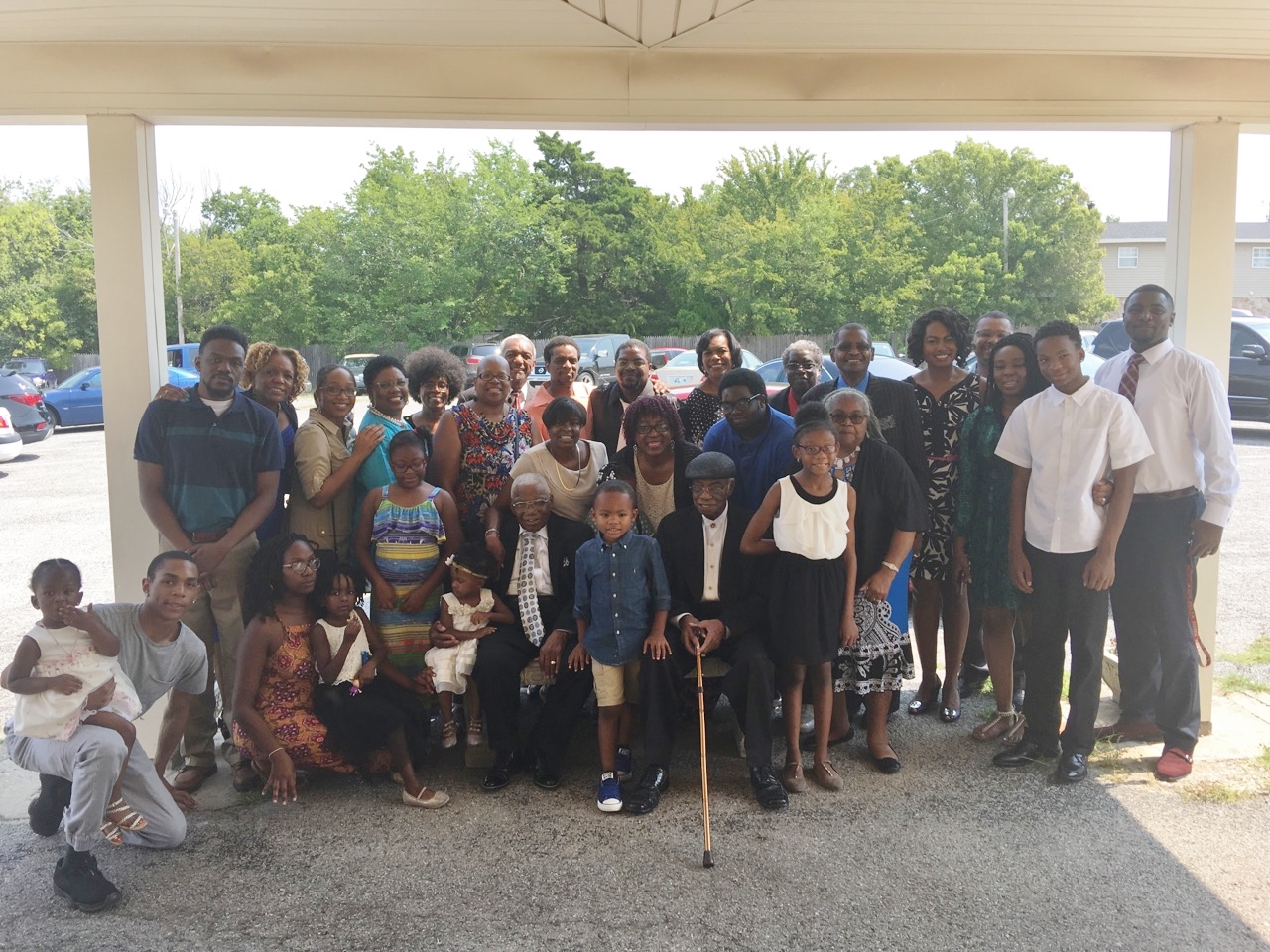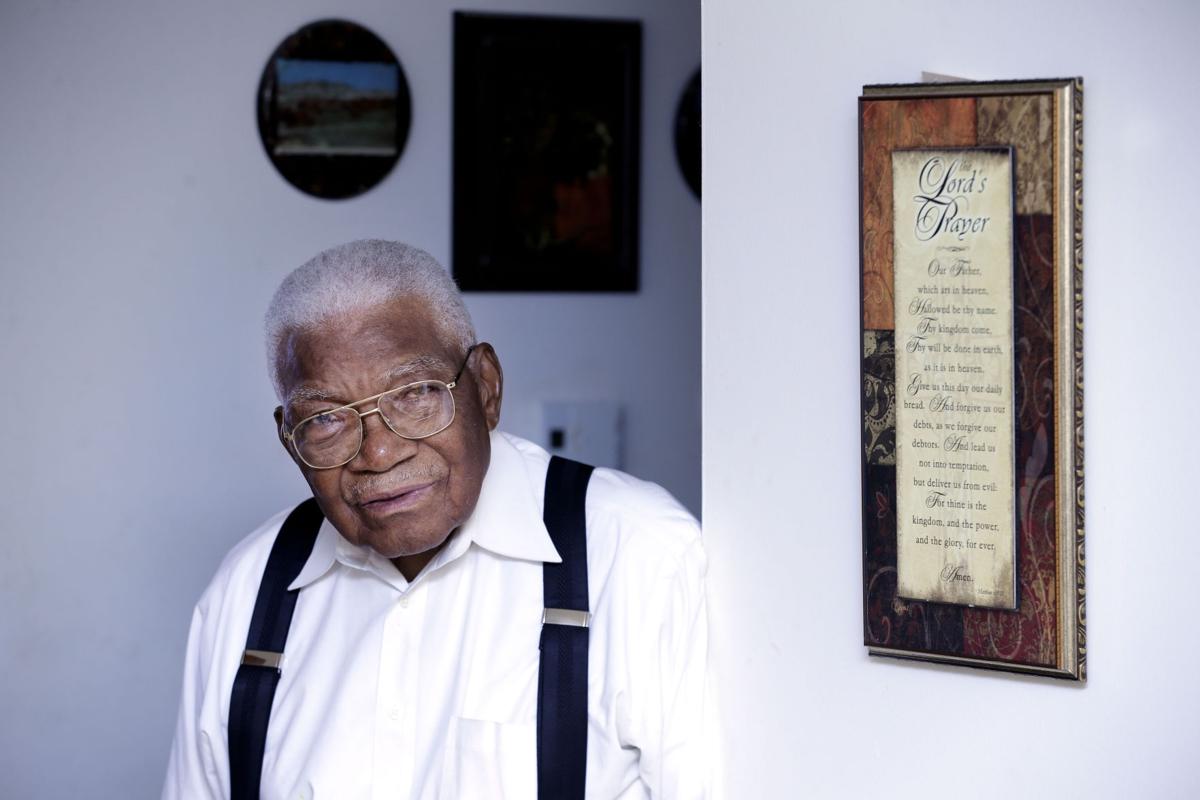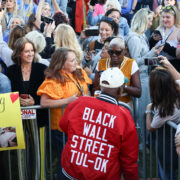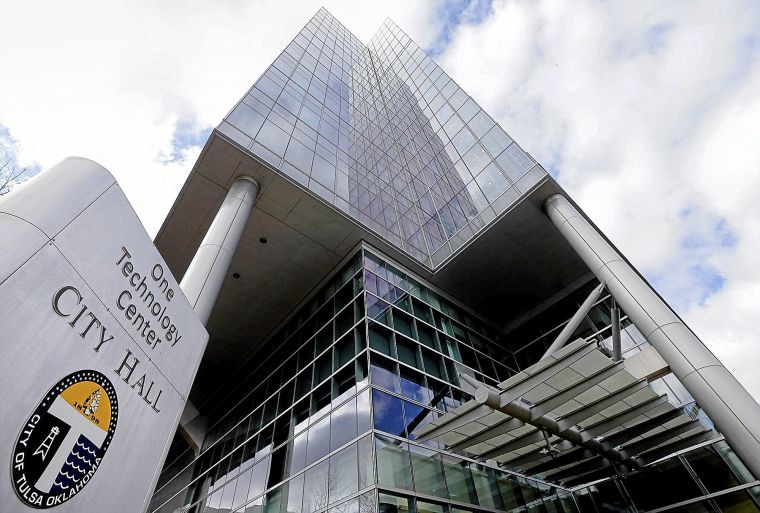
Oklahoma Eagle Newswire
Tulsa World Newspaper
By Bill Sherman Tulsa World

The Annual Harris Family Reunion will take place Friday thru Sunday, August 31-September 2, 2018. Planned events include: Friday Night – Meet & Greet Reception – Holiday Inn Express & Suites – South Tulsa/Bixby, OK Saturday Night – Harlem Nights Theme Banquet – Holiday Inn Express & Suites – South Tulsa/Bixby, OK Sunday Morning Worship – Holsey Chapel C.M.E. Church – 1804 E. 48th St. N., Tulsa, OK 74130
Rev. W.B. Harris has lived in the same area a few miles south of Bixby for all of his 96 years. He grew up farming with his dad, working in the field as a young boy. He lived through the Great Depression and World War II, raised six children, worked his own 128-acre farm, held odd jobs and pastored several churches in and around Tulsa.
He lived the first half of his life under Jim Crow laws and a social order that kept him in the back of the bus and out of many Tulsa restaurants.
And he saw it all change with the Civil Rights Movement of the 1960s.
In his words, here are lightly edited excerpts from an interview at his comfortable home on his farm south of Bixby, where he and his wife Wanda still live, his black Angus cattle visible out the back window:
Early life
I was born June 26, 1922, near Leonard, six miles northeast of this house, and lived my whole life in this area.
I started working in the field when I was 7 years old.
My dad and I, we raised cotton and corn. Cotton was our major living. When we had a crop failure, things were severely tough for us.
I went to W.T. Vernon School, in Snake Creek, a little community.
When we’d go to town, mostly on Saturdays was the only time we’d go to Bixby, we’d ride a horse, or ride in a wagon with my dad. And that was more or less a visiting time and outlet for my dad, where the blacks met on Saturday to buy their groceries and visit.
Discrimination
While we were there, if we wanted pop or an ice cream cone, we’d go into the drug store and buy it, but we would have to come outside to consume it, because of discrimination. If you attempted to drink or eat in the drugstore, they would ask you to go out. You could not sit down at one of the tables. You could not enter one of the restaurants, not only in Bixby, but in the city of Tulsa.
I went into the army in 1943. I was 20 years old. I landed in England, from there to France, from France to Germany …
I was the azimuth tracker on a 40 mm gun. It was on wheels.
I saw a lot of action.
I was very grateful that I did not get injured while serving in the United States service.
I came back in 1945. I started farming in this area. Cotton and corn, and a few head of cattle.
It was tough. You couldn’t borrow enough money to make money. You could barely borrow enough for food to feed your family, and for seed to plant your crop.
When I came out of the army was when I really experienced discrimination.
I saw Caucasian men who were farming like I was, go to the bank, who did not own their equipment, and get a note for $2,000 to make a crop.
I would go in the same bank. I had a tractor and equipment, paid for, with cash, but I had to beg to borrow $500, mortgaging all of the equipment that I had, and the four or five head of cattle that I had.
I could see it with my own eyes.
It was hard to survive through that kind of discrimination.
Segregated schools
I saw children in this community have to get up out of their bed at four and five o’clock in the morning and board a bus and ride to Tulsa because they could not enroll in the Bixby schools.
Until that time, the black children in the Snake Creek area were bused to Booker T. Washington High School and other schools in the Tulsa area.
My children went to Liberty Mounds school from day one, west of here. They didn’t get bused to Tulsa. But the children just north of me did. The Bixby district starts one-quarter mile north of me.
Tulsa was no better. Many, many, many times I entered the bus station in Tulsa, because I traveled to Muskogee, to Wichita, Kansas, …. We had to sit in the back. If the bus was not filled, you still had to sit in the back.
I worked at 11th and Lewis, at a filling station there, next door to the filling station was a restaurant. At lunchtime, if I did not take my lunch with me, I would have to go to the back door of the restaurant and buy my lunch. And I’d come back to my car, which was parked at the filling station, and eat my lunch.
I had not been exposed to anything different. I felt angry about it, but I saw others doing it, so I did not feel that I was the only person having to do it. I guess that was the only thing that gave me some ease.
I grew up that way, so when it changed, there was quite an excitement, quite a different feeling.
Civil Rights Movement
When it changed in the ’60s, it was hard to believe. When we walked into a drug store and sat down and ordered a coke or an ice cream, and were able to sit there and consume it, it was almost unbelievable.
I always felt like I was somebody, but when the change came, I began to open my eyes, and say “Did I ever dream that I would see this?”
I never professed to be an angel, but I never forgot about God. I always had faith in my Lord and Savior Jesus Christ.
At age 37, I was called to the ministry. I delivered my first message on Sept. 13, 1969. I was assigned to my first church in Muskogee.
I was promoted to presiding elder, where I served 18 years, up to my retirement.
Black power movement
I limited my talk about it (the black power movement), not because I was not concerned, but I realized that the more I talked about it, the more anger would build up in my people that I was serving. So I minimized my talk about it. Maybe helpful, maybe not helpful. But I felt like it would not benefit them to get angry and maybe do something they would regret.
I never did encourage violence.
I stayed with the Scriptures. The Scriptures teach love. I never said love black, love white, love red. I said love all mankind.
I bought this farm in 1967, 128 acres. I paid back the note in five years.
I farmed it until I was in my 70s. And I still have a few livestock, black Angus cattle.
My children grew up in houses that were not so comfortable. We had this house built in 1968, when my children were in high school, so they didn’t get the chance to enjoy it very much. But I think they enjoy being able to come to a decent place, when they come home.
All of them graduated from college but one. Four of them have their master’s degrees. Two were in education, one in corrections, one an insurance auditor.
Race relations today
Race relations in America is better, in one sense. You can go to the hotel, you can get a room, have a decent meal. You can get on the bus or the plane and take the seat that’s available. It’s a different feeling from what it was in the days of discrimination.
I have some of the greatest Caucasian friends and neighbors that anybody would want to have in their lives now, and have had for a number years. It’s altogether different.
We need more black educators. We need more blacks to stay in school and obtain their education, so they can stand up for what is right. And those that have done that have improved the situation to some extent. It’s not what it has been, and definitely not what it ought to be now. Education, and dedication to right, is the key to advancing the black race.
I encourage every black child, girl or boy, to please stay in school, go to college, get your degree, get your master’s degree. So you can not only help yourself, but you can help others.
Never forget, we shall never leave our Christian religion, which guides and governs in all of our walks of life.









